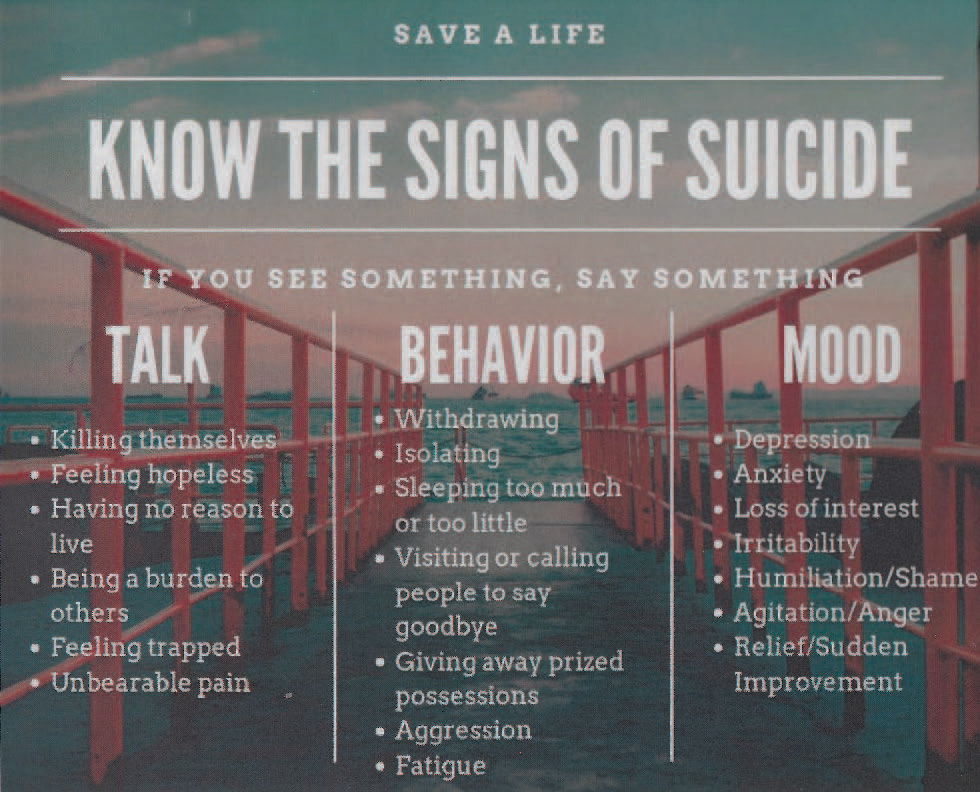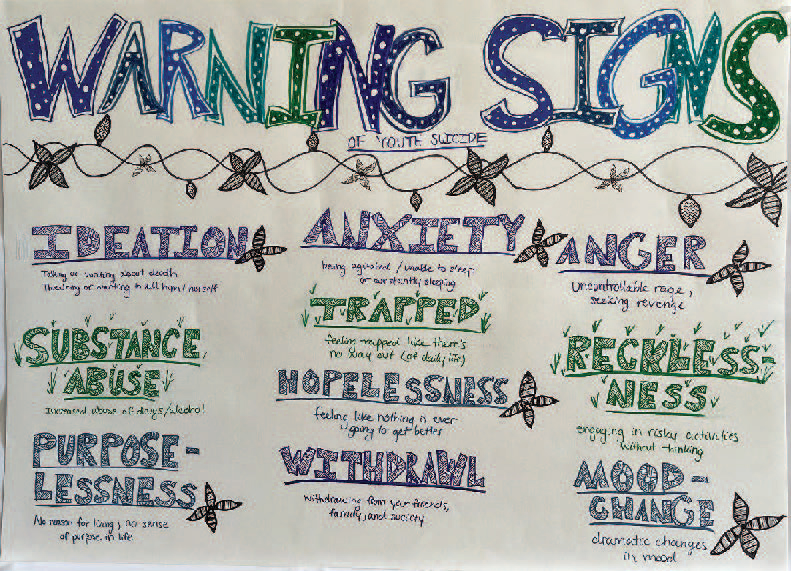1Why do People Die By Suicide?
In attempting suicide, a person is really trying to stop unbearable emotional pain. The person is so distressed and overwhelmed by their situation that they cannot see any other option. Often, a suicide attempt is a cry for help.
Suicidal people usually feel terribly isolated. In reality, there are often community resources, friends, and family ready to help them past what may be the most difficult period in their lives.
2What are the Risk Factors for Suicide?
Suicide risk factors and warning signs include: suicide threats, previous suicide attempts, depression, out of character behavior, and making final arrangements. Learn more on our In Crisis page.
3Should Suicide Threats be Taken Seriously?
Yes. Always take any comment about suicide seriously. Most suicidal people give many clues and warning signs regarding their suicidal intentions, including definite warnings to family and friends.
4What Should I Do if I Think Someone may Try To Attempt Suicide?
Ask the person directly if they are having suicidal thoughts, if they plan to attempt suicide, and if they have the means to do so. If you believe they are in crisis, call the Westmoreland County, PA Crisis Hotline at 1-800-836-6010. National Lifeline: 1-800-273-TALK. Learn more on our In Crisis page.
5Will Talking About Suicide Make Things Worse?
No. There is no evidence that talking about suicide (in a respectful, caring fashion, in the context of prevention) increases the risk of suicide. Research does show that talking openly and responsibly about suicide helps people understand that they are not alone and that others care about their situation.
6Is Depression a Cause of Suicide?
Many people who have attempted suicide were found to be suffering from one or more mental health issues, including depression, anxiety, bipolar, psychosis, and substance abuse. This does not mean that everyone with mental health issues is at risk for suicide, only that depression and other mental health issues can be one of the risk factors.
7How Does Suicide Affect Family and Friends?
For the survivors left behind, losing a loved one to suicide is an extremely traumatic event. Grief, guilt, anger, confusion, and emotions of distress and mourning can be quite acute for survivors of suicide. Often, the social stigma associated with suicide only makes the situation worse. Learn more on our Survivor Support page.
8Do More Men or Women Attempt Suicide?
Women attempt suicide 2-3 times more often than men; however, men die by suicide 4 times as often. From a demographic point of view, most at risk are white males 45-60 years of age.



